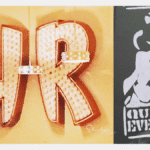Recently, one of the most prominent CEO’s in our lifetime, Mr. Jack Welch – formerly of GE, penned an article about layoffs being a defining moment in human resources. I read the article and, frankly, it’s been bothering me. While I understand that orchestrating layoffs often falls within the domain of human resources, I don’t view them as a “moment of truth”.
God forbid. When a company is faced with a layoff decision, how employees are treated shouldn’t come as a surprise. Employees should know that they’ve been treated with dignity and respect their entire time at a company and, if faced with a layoff or termination, the circumstances should be no different.
I certainly agree with Jack that, during a layoff, employees should not be let go by an outplacement consultant. They should be treated with the utmost respect. They deserve it. These are employees who have worked long and hard for the company.
But I don’t agree that layoffs are a “moment of truth” for human resources. That’s not when HR should demonstrate whether or not a company really cares about its people. HR (and the rest of the company for that matter) should be demonstrating their caring respect each and every day.
Jack goes on to talk about the role of HR today. I totally concur with his comments that HR should do more than just plan the company picnic and file benefits paperwork. But I also think that it’s time HR Pro’s shed the role of “arbiter of equity.” Isn’t that just a euphemism for ‘striped shirt’? He makes it sound like operational managers have no obligation to provide equity . . . only HR.
And, I’m not sure that I agree it’s the role of HR to absorb pain. It’s the role of HR to help the organization handle pain. But our role is to teach managers how to identify it, process it, help their employees through it, and move forward.
If HR wants to really be a business partner, they have to remove the moniker of “layoff and pain” department. If you think about it, aren’t handling layoffs, being an arbiter, and absorbing pain all reactionary activities? Shouldn’t the role of HR be proactive and more than a little strategic? HR needs to train people how to deal with emotional fallout of business decisions. That’s the real moment of truth for human resources…teaching and educating.







Lisa Rosendahl says
Reminds me of a time when my small HR Dept of 4 sought feedback from our customers and it came back to us that we were seen as the “No no girls.” A number of things contributed to that and could be a post of it’s own but let’s just say that this very perception was the one thing we committed to changing.
Michael VanDervort says
Why should HR be the referee and the layoff department? Why isn’t every manager accountable for that kind of minimal management obligation to people?
HR departments should be focusing on keeping people employed and contributiing and hiring “A” level talent.
Businesses should be focusing less on long term market sound bytes and more on the strategy of long term competitiveness.
Grrr
Ann Bares says
It is unfortunate that someone as prominent as Mr. Welch is pushing a misinformed (and ultimately unproductive) image of HR – the “layoff and pain” department, as you coined it. Your response and counterpoints are great!
Laurie Ruettimann says
This
is
brilliant.
If you’re doing HR right — educating your clients, making a difference during the strategic planning process, teaching, leading — you will see the impact at all levels of the company and at all times.
If HR is only relevant during layoffs, you’re doing HR wrong.
Kerry says
Holy cow–that WAS brilliant.
I have no interest in wearing a striped shirt, and I avoid organizations that see HR that way. Jack Welch is living in the past. We need to move forward.
lisalotzer says
As previously stated, this is brilliant! It is funny how some expect HR to be the medics to run triage on all the stuff that happens (implies no planning).
Outstanding comments…
Cathy Martin says
This is such a timley post as a colleaugue of mine sent me a Jack and Suzi Welch article from BusinessWeek in 06 talking about how HR needs to be involved in training and relationships….So in the earlier article he is agreeing with the Bartender! (he still slpas us around, but he talks about those 2 ways to add value to our organizations!)
Great post!
Hayli @ Transition Concierge says
Welch mentions that they’ve written before about the game-changing role HR can play in the hiring, appraisal and development processes. This article just happens to deal with HR’s role in layoffs, a timely topic and responsive to the reader’s question. My impression was that he doesn’t necessarily contradict himself or imply that layoffs are all HR is good for.
When it comes to arbiter of equity, it could be the simple matter of making sure everyone is laid-off by their own manager – not a stranger. And why not take it a step further and equip each person for their next opportunity? What about custom resumes and job leads for all? Not as expensive as one might think…
Bottom line, whether it’s HR or direct managers dealing the blows and arbiting the equity, this is the employee’s last impression of the company. It means so much to get a helping hand when you’re down, being treated with dignity as opposed to being suddenly treated like a diseased mutant who morphed overnight. Rest assured word will get around either way so doing laid-off employees a solid is essentially an investment in the company’s future reputation, right?
David says
I really am struggling to see the concern that many are voicing here.
Sure I’m not in love with the comment: “moment of truth”…that’s being a bit ridiculous…I would hope that HR could bring more to the party than just “layoff executers” but other than that…what’s not true?
I’ve worked in GE-HR (and for Jack) and I can assure you that he thinks that HR can and is a lot more than paper pushers, but when he talks about “arbiter of equity” and “absorb pain” why shouldn’t those be HR’s job?
As HR professionals you and I both know that their are People Leaders who are not going to be able to handle RIFs in the way that they should be handled…and who better in an organization to do it the “correct and humane” way than HR?
Look…I’m not in HR anymore…and quite frankly this type of “outrage” is a big reason why.
You are in HR. It’s called HUMAN resources…and this act needs HUMANE treatment…it doesn’t mean you can’t be a Business Partner once the RIF is done, it doesn’t mean you’ve been relegated to a ’striped shirt’, it just means that you are supposed to be the best equiped people in the organization to do this in the manner that it should be done…so do it and do it right.
Margaret says
OK – this topic could be of encyclopedia proportions. JW is so off course on HR’s role vs. the role of the manager who is laying the person off. It’s almost funny. If tragedy has any humor in it.
But Mr. Welch is also is the personification of an executive who did not receive effective HR strategic advice ongoing. In other words, where was Jack’s HR guy all those years when Jack was forming his HR philosphy? Cranking people through cultural leadership training?
HR execs too often tell me that sr mgt won’t let them be strategic – a true statement, but changing that means HR taking big risks and the first risks you take may not work – may even backfire. It takes a determined person with a vision and highly focused energy to push their way out of a box that management have put them in, again and again. BTW – this can be true for other functions in an organization, not just HR.
It’s uncomfortable for sr management to be pushed, taught, cajoled, led, to a different point of view but the process is more uncomfortable for HR. In my experience, HR professionals are among the most strategic people in an organization. But, they continue to be defined by others because the process of changing that requires a different kind of energy. And, they are keenly aware that their best energy is needed very badly in other areas. It is a daunting task.
Michael says
I would have to agree with Dave’s comments on this. I get so tired of “we (HR) need a seat at the executive table” or “we (HR) are business partners”. Most effective HR folks I know earned the seat at the table by understanding the business and the financials the company is in. These same folks also “naturally” became business partners to the business because of thier understanding of both in the company. HR’s “moments of truth” come every day by the way you handle YOUR part of the business to make the company and employees successful.
hr bartender says
Thanks for the comment Michael. I’ve been saying all along that HR needs to quit talking about “getting a seat at the table” and “being a business partner.” If HR does their job and helps the organization achieve their business goals, they’ll have that seat…no questions asked.
The statistics today on employee disengagement point to a failing in leadership. HR pros need to become advocates for education and professional development. I can’t help but think if people didn’t view HR as a referee or the complaint department; it would go a long way toward helping HR spend their time developing managers and leaders.
Michael says
I too believe that education and professional development are cornerstones for developing leadership skills in management. Other cornerstones/skills HR needs to demonstrate: sufficient business acumen such that HR “suggests” business-related initiatives; change management and leadership skills; assisting the business in aligning product projects, financial and people measures of success; ensuring organizational goals/alignment/efficiencies within and between organizations so that work gets accomplished within and organization and products flow between organizations to the marketplace.
I am sure that your readers have their “favorite ideas” as well – let’s see.
hr bartender says
I totally agree. In fact, many HR bloggers have written posts over the past few months talking about human resources competencies. The best compilation I’ve seen is over at Matthew Stollak’s blog, True Faith HR. He put the list together as required reading for his students. Here’s a link:
http://truefaithhr.blogspot.com/2010/01/way-of-life.html
Lots of thought provoking reading about what it takes to be in HR.